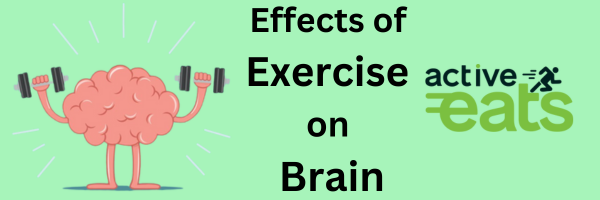Elevate Your Joy: The Profound Connection Between Exercise and Happiness Unveiled
Exercise and happiness are interlinked as exercises are not just beneficial for your physical health, but it can also have a huge impact on our overall happiness and well-being. Regular exercise and workouts has proven to be effective in increasing happiness levels. Engaging in physical activity releases endorphins, which are known as the “feel-good” chemicals that improve our mood and create feelings of happiness and satisfaction.
Additionally, exercise provides a sense of accomplishment and boosts self-esteem, contributing to overall happiness. In this blog post, we will explore the role of exercise in happiness, its impact in fighting anxiety and depression, its ability to lift our mood, its influence on hormone balance, and its effects on the brain. By understanding the powerful connection between exercise and happiness, we can unlock the potential for a happier and healthier life.
Finding Happiness with Exercise

Regular exercise creates a positive impact on happiness levels. Engaging in physical activity leads to increased levels of endorphins, which are known to improve mood and create feelings of happiness. Also, regular exercise gives a sense of accomplishment which boosts self-esteem resulting in increase in overall happiness.
Engaging in physical activities that brings joy as well as improves fitness can also greatly enhance happiness levels. Regular exercise can serve as a form of therapy and provide an outlet for stress and negative emotions, leading to increased happiness.
The Role of Exercise in Fighting Anxiety and Depression

It is clinically proven that regular exercise can have significant impact in reducing symptoms of anxiety and depression. Physical activity such a exercise stimulates the release of feel-good chemicals in the brain, such as serotonin, endorphins, adrenaline and dopamine, which can alleviate symptoms of anxiety and depression. Additionally, regular exercise can improve sleep patterns, reduce fatigue, and increase energy levels, all of which can help combat anxiety and depression.
Engaging in physical exercise can provide a distraction from negative thoughts and keeps the mind occupied with improving the health and fitness level of body leading to a more positive mindset, aiding in the management of anxiety and depression.

Exercise boosts self confidence which may promote social interaction and can help combat feelings of isolation and loneliness, which are often associated with anxiety and depression. This improved social interaction can lead to increased sense of happiness.
How Exercise Can Lift Your Mood and boost happiness
Exercise increases blood flow in the body and improved oxygen levels to the brain, resulting in improved cognitive function and a more positive mood.
Engaging in physical activity stimulates the release of endorphins, which are natural mood lifters.
Regular exercise can boost self-confidence and promote a sense of accomplishment and capable, leading to an improved mood. Also, exercise can serve as a healthy outlet for stress and tension. Intense workout sessions can help create a more focused and positive mindset.
Additionally, physical activities and workout sessions provide a change in daily routines and responsibilities, allowing individuals to focus on themselves and their well-being, leading to an uplifted mood and energy levels.
Exercise and Hormone Balance: Exercise and happiness hormones
Regular exercise can help regulate various hormone levels, promoting overall chemical balance in the body.

Physical activity has been shown to increase the production of endorphins in brain which blocks the perception of pain and increase the feeling of well-being. This leads to decrease in stress hormones, such as cortisol, resulting in improved hormone balance.
Exercise and physical activities gives a sense of accomplishment which activates the brain’s reward mechanism resulting in release of dopamine hormone in our body. Over time, regular exercise can re-structure our brain’s reward system resulting in better response to dopamine leading to better memory, happier mood and decreased anxiety.
Exercise and workout session increases better blood flow into muscles. This leads to release in adrenaline or epinephrine hormone by adrenal glands. They increase the concentration of oxygen dissolved in blood leading to more intense workouts. High adrenaline in blood results in better confidence and more feeling of being capable.
Exercise also enhances the function of the endocrine system, which is responsible for hormone production and regulation. Also, regular exercise can improve insulin sensitivity and help maintain stable blood sugar levels, contributing to better hormone balance in the body.
The Effects of Exercise on the Brain

Exercise has a profound impact on brain health, improving cognitive function and reducing the risk of age-related diseases, such as dementia. Physical activity increases blood flow and oxygen to the brain, promoting the growth of new brain cells and enhancing neural connections. Also, regular exercise has been shown to improve memory, attention, and overall mental clarity. This results in increased sense of happiness.
Regular exercise stimulates the release of neurotransmitters, such as dopamine and serotonin, which play a crucial role in brain function and mood regulation which helps immensely in improving mood, reducing symptoms of depression and anxiety, and enhancing overall mental well-being.
Conclusion
Exercise has numerous benefits when it comes to happiness and well-being. Regular physical activity not only releases endorphins and enhances mood, but it also provides a sense of accomplishment and boosts self-esteem, contributing to overall happiness. Also, exercise plays a crucial role in fighting anxiety and depression by stimulating the release of feel-good chemicals in the brain and promoting positive thinking. It also helps to balance hormone levels, leading to improved overall health and mood stability.
Exercise also has a huge impact on brain health, improving cognitive function, memory, and mental clarity. It reduces the risk of age-related diseases and promotes the growth of new brain cells. Overall, exercise is not only beneficial for physical health but also an essential component in achieving happiness and mental well-being.
Incorporating regular exercise into our lives, finding activities that bring joy and satisfaction, can significantly enhance our happiness levels. So, let’s tie up our sneakers and prioritize exercise for a happier and healthier life!

